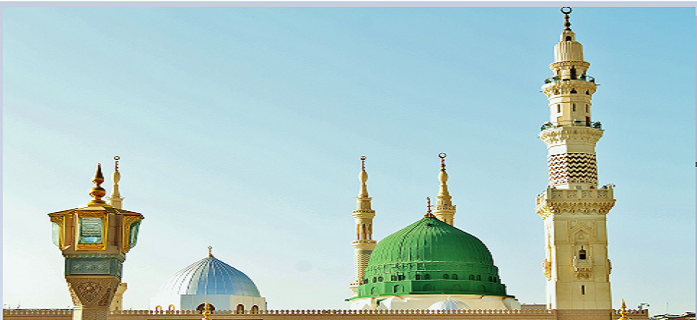What is Masaarife Zakat?
All praises and thanks are due to Allah, The most gracious, most merciful, owner of
the day of resurrection.
Masaarife zakat, that is to whom Zakah can be given. These are the people who are
eligible to receive Zakah. Allah (SWT) has prescribed them in the Quran, chapter 9,
verse 60.
The recipients of zakah according to this verse are as follows:
1) Zakah are for the poor
2) The needy
3) Those who collect zakah
4) For those whose hearts are to be reconciled
5) To free the captives
6) Debtors
7) For the cause of Allah (SWT)
8) And for the traveller of the way of Allah (SWT)
A duty ordained by Allah (SWT) and verily Allah is all knowing; all wise.
Following is the meaning of the verse:
In the beginning of the verse, Allah (SWT) said, "Zakah are for the fuqara".
Fuqara - is plural for faqir. Fuqara's definition is people who are poor and who
nothing or very little or who possess more than their basic needs but do not possess
wealth equal to nisaab.
Massakeen - plural of misqeen. The definition of misqeen is people who are destitute
and extremely needy to the extent that they're forced to beg for their daily food ration,
who do not have according to nisaab.
Al-aamileen - the workers who are appointed by the Islamic state to collect or
distribute zakat and perform other functions related thereto, it is not necessary that
this be a needy person; the is a wage.
Mu-allafate quloob - for those people that have recently accepted Islam and are in the
need of the basic necessities. Such people would benefit from encouragement and
assistance by the Muslims which would help strengthen their faith of Islam. Some
scholars say that this word means reconciliation of hearts of those who are inclined to Islam; or are weak in Islam etc. According to the many scholars, this item of
expenditure has become obsolete after the prophet (SAW).
Ar-Riqaab - those slaves that are permitted to work for re-numeration and have an
agreement with their masters to pus-chase their freedom on payment of the fixed
amounts.
Al-gharimeen - the debtors; those persons that have a debt and do not possess any
other wealth or goods with which they could repay that which they owe. It is
conditional that this debt was not created for any un-islamic or sinful purpose.
Fee-sabeelillah - those persons that have to carry out a fardh deed which has become
obligatory on them and subsequently due to loss of wealth are unable to complete that
fardh.
Ibnus-sabeel - those persons who are mussafir travellers in view of shariah and during
the course of their journey do not possess basic necessities. Though they're well to do
at home, they can be given zakah in order to fulfil travelling needs to return home.
These are the eight categories to which Allah (SWT) prescribed eligible to receive
zakah. You can give your zakah to as many or as few of the categories you wish or
any one category. Whichever is available to you.
We should remember that the word sadaqa is used in two ways. Sometimes the word
applies for wajib sadaqa, that is compulsory charity, and sometimes the word applies
for nafal sadaqa, which is optional charity. So, the main conditions to pay
compulsory zakah that all the recipients must be Muslims and all must be those who
do not possess the nisaab excluding al-amileen (those who collect zakah).
This is the major difference between fardh sadaqa and nafal sadaqa. For this reason,
nafal sadaqa can be given to non-Muslim brothers and sisters whereas wajib sadaqa,
that is zakah, cannot.
It is very important to differentiate whom amongst your relatives, zakah can be given.
You can give these people zakah, if they do not possess nisaab and, if zakah is not
fardh upon them, as well as being in one of the aforementioned 8 categories.
You can give zakah to the following people:
a) A brother or a sister.
b) A nephew or a niece, (brothers or sisters children).
c) An uncle or an aunt, (both maternal and paternal).
d) A step father or step grandmother.
e) Father-in-law or mother-in-law.
These people cannot be given zakah:
a) Zakah cannot be given to Banu-hashim. The nau-hashim are all the children if
hazrat Fathema (ra). All the members of Rasulullahs family and wives.
b) Zakah cannot be given to parents, grandfathers etc. In the same manner ones
children and grandchildren cannot be given zakah. A husband and wife cannot
give zakah to each other.
c) Zakah cannot be given to non-Muslim brothers and sisters.
d) Zakah cannot be used for the kaffan of a deceased person because at that time
he or she cannot become the owner.
e) A deceased person's debt cannot be paid from zakah.
Above are some of the points about zakah; those Muslims who do not pay zakah,
they do not realise the importance of zakah and they are not aware of the grievous
chastisement of not giving zakah.
Brothers and sisters if zakah is due to you then remember that Allah (SWT) has given
us the wealth we have to help others. Allah (SWT) will reward us in the hereafter and
this dunya for all the good deeds.
Ameen
Posted on Dec, 2008 by Md Yousuf Saleh

